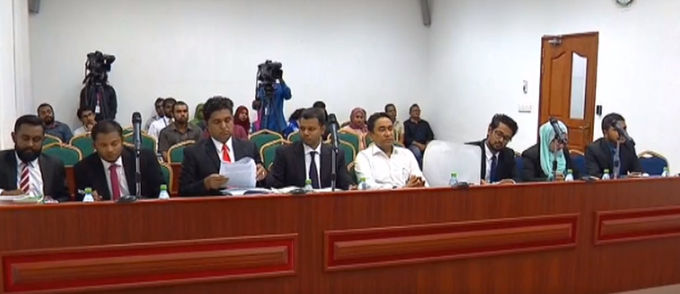Minivan Brief: ex-president’s money laundering trial concludes
A roundup of the day’s top stories.

09 Oct 2019, 09:00
US$55 million paid under settlement agreement with Noomadi
Education ministry defends prioritising residents for Malé schools
Malé-atolls divided in the spotlight
Broadcasting commission president resigns before impeachment vote
Former president Abdulla Yameen’s money laundering trial concluded on Wednesday after the criminal court heard closing arguments from the prosecution and the defence.
A verdict will delivered on November 5, Judge Ahmed Hailam announced.
Yameen was charged in connection with US$1 million deposited to his personal bank account by SOF, a company that was used to funnel the bulk of US$90 million stolen from state coffers during his administration. The 60-year-old opposition leader is also accused of violating an agreement signed with the Anti-Corruption Commission to hold the US$1 million in an escrow account.
Become a member
Get full access to our archive and personalise your experience.
Already a member?
Discussion
No comments yet. Be the first to share your thoughts!
No comments yet. Be the first to join the conversation!
Join the Conversation
Sign in to share your thoughts under an alias and take part in the discussion. Independent journalism thrives on open, respectful debate — your voice matters.




